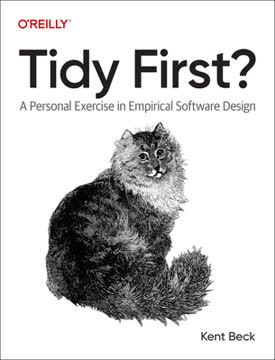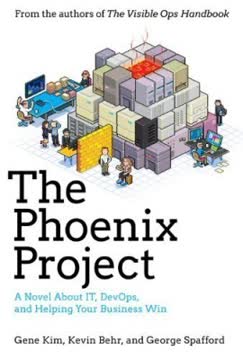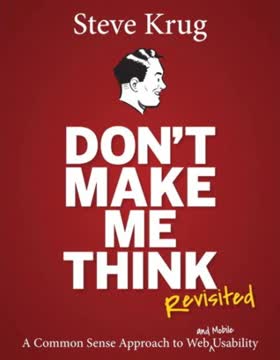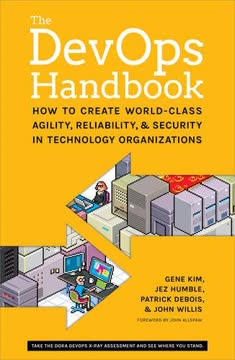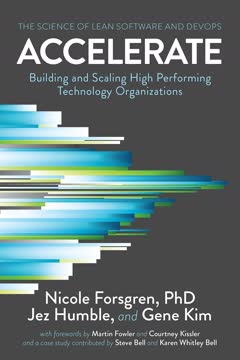つの重要なポイント
1. リモートワークは未来である:技術がそれを可能にし、有益にする
技術はここにある。どこでも、いつでも人々とコミュニケーションし、協力することがこれまでになく容易になった。
技術の進歩は職場を変革し、シームレスなリモートコラボレーションを可能にしました。ビデオ会議、画面共有、プロジェクト管理ソフトウェアなどのツールは、リモートワークの多くの障壁を取り除きました。このシフトは多くの利点を提供します:
- 通勤時間とコストの削減
- グローバルな人材プールへのアクセス
- オフィスの雑音が少ないため生産性の向上
- 従業員のワークライフバランスの改善
環境への影響も重要であり、通勤の減少により炭素排出量が削減されます。企業はオフィススペースと関連費用を節約でき、従業員はどこからでも働く柔軟性を享受できます。
2. 非同期コラボレーションと柔軟なスケジュールを受け入れる
分散型の労働力における大きな転換は、同期から非同期のコラボレーションへの移行です。
非同期コミュニケーションは、チームメンバーが自分のスケジュールで作業することを可能にし、生産性を高め、邪魔を減らします。このアプローチは:
- 人々が最も生産的な時間に働くことを可能にする
- 異なるタイムゾーンや個人的なコミットメントに対応する
- 思慮深く、よく練られた応答を促進する
非同期作業を促進するために:
- Basecamp、Slack、Asanaなどのツールをプロジェクト管理とコミュニケーションに使用する
- 応答時間と可用性に関する明確な期待を設定する
- 決定とプロセスを簡単に参照できるように文書化する
柔軟なスケジュールを受け入れ、従業員が最も生産的な時間に働けるようにします。早朝でも深夜でも構いません。
3. 椅子ではなく仕事に焦点を当てる:時間ではなく成果を測る
一日中誰かを見ていられないとき、評価するのは仕事だけです。
成果重視の管理はリモートワークの成功に不可欠です。働いた時間やデスクに座っている時間を監視するのではなく、以下に焦点を当てます:
- 納品物の質とタイムリーさ
- 合意された目標と目的の達成
- チームプロジェクトおよび全体的な会社の成功への貢献
明確なパフォーマンス指標と定期的なチェックインを実施して、整合性と進捗を確保します。このアプローチは:
- 自主性と自己動機を促進する
- マイクロマネジメントを減らし、信頼を高める
- リモートおよびオフィスの従業員を公平に評価することを可能にする
4. リモート成功のために信頼とエンパワーメントの文化を築く
従業員が自宅で働くことを恐れて監視しなければならないなら、あなたはベビーシッターであり、マネージャーではありません。
信頼は基盤です。リモートワークの成功のために信頼の文化を築くには:
- 自主的に働ける自己動機付けされた個人を雇う
- 明確な期待と目標を提供する
- 従業員に意思決定を任せ、仕事の所有権を持たせる
- 成功を祝うとともに、失敗から学ぶ
オープンなコミュニケーションと透明性を促進します:
- 定期的なチームミーティングと一対一のミーティング
- 共有プロジェクト管理ツールと文書化
- 質問とフィードバックを奨励する
信頼は双方向のものであることを忘れないでください。マネージャーも信頼でき、リモートチームをサポートする必要があります。
5. リモートワークに関する一般的な言い訳と恐怖を克服する
多様な文化の中で魔法と創造性が育まれます。
懸念に積極的に対処してリモートワークへの抵抗を克服します:
- コラボレーション:ビデオ会議やデジタルホワイトボードなどのツールを使用する
- セキュリティ:強力なサイバーセキュリティ対策とプロトコルを実施する
- 文化:バーチャルチームビルディング活動を通じてつながりを育む
- 生産性:結果に焦点を当て、明確な期待を設定する
リモートワークの利点を強調します:
- 邪魔が少ないため生産性が向上する
- より広い人材プールへのアクセス
- オフィススペースのオーバーヘッドコストの削減
- 従業員の満足度と定着率の向上
小さなステップから始め、例えば時折の在宅勤務日を許可することで、移行を容易にし、成功を示します。
6. リモート機会を通じて世界中の最高の人材を採用し、維持する
世界はこれまでになく小さくなり、市場はこれまでになく開かれています。
グローバルな人材獲得はリモートワークによって可能になり、企業は:
- 多様なスキルを持つ専門家のプールにアクセスする
- 場所ではなく能力に基づいて採用する
- テックハブでの地元の人材競争を減らす
トップリモート人材を引き付け、維持するために:
- 場所に関係なく競争力のある給与を提供する
- 成長と発展の機会を提供する
- 強力なリモートワーク文化とサポートシステムを作り上げる
- ワークライフバランスと柔軟性を強調する
「リモートファースト」の採用戦略を実施し、グローバルな人材プールを最大限に活用し、真に多様な労働力を作り上げます。
7. バランスの取れたリモートワークライフスタイルを作り、燃え尽きを防ぐ
仕事を主要な趣味にするのは簡単です。
境界を確立して、仕事と個人生活の間にバランスを保ち、健康を維持します:
- 生活空間とは別の専用作業スペースを作る
- 定期的な勤務時間を設定し、それを守る
- 休憩を取り、運動や社交活動の時間をスケジュールする
- 仕事と個人用に異なるデバイスやアカウントを使用する
リモートチームの健康的なワークライフバランスを奨励します:
- オフ時間と週末を尊重する
- 休暇の利用を促進する
- メンタルヘルスリソースとサポートを提供する
- マネージャーとして模範を示す
チームメンバーと定期的にチェックインし、過労の兆候がないか確認し、迅速に対処します。
8. 効果的なリモート管理には新しいスキルと実践が必要
マネージャーの仕事は猫を追い回すことではなく、リードし、仕事を確認することです。
管理スタイルを適応させ、リモートチームに対応します:
- 日々の活動をマイクロマネジメントするのではなく、成果に焦点を当てる
- バーチャルなやり取りのための強力なコミュニケーションスキルを開発する
- 対面での接触なしに信頼と関係を築く方法を学ぶ
- リモートコラボレーションツールと技術に精通する
効果的なリモート管理の実践を実施します:
- チームメンバーとの定期的な一対一のチェックイン
- 明確な目標設定とパフォーマンス期待
- バーチャルチームビルディング活動と社交的なやり取り
- 透明な意思決定と情報共有
マネージャーがこれらの新しいスキルを開発し、リモートリーダーシップの課題に適応するためのトレーニングに投資します。
9. リモートワークは生産性と仕事満足度を向上させる可能性がある
自由は奴隷である。
逆説的に、リモートワークは生産性と満足度を向上させることができます:
- 通勤時間とオフィスの雑音を排除する
- 従業員が最も生産的な時間に働けるようにする
- より良いワークライフバランスとストレスの軽減を提供する
これらの利点を最大化するために:
- 明確な目標と締め切りを設定する
- リモートワークに必要なツールとリソースを提供する
- 燃え尽きを防ぐために定期的な休憩と休暇を奨励する
- 生産性と成果を認識し、報酬を与える
定期的な調査とフィードバックセッションを通じて従業員の満足度を監視し、高い士気とエンゲージメントを維持するために懸念に迅速に対処します。
10. オープンソースプロジェクトから学び、リモートコラボレーションを改善する
平均的なビジネスや消費者向けソフトウェアパッケージと比較して、これらのオープンソースの例ははるかに複雑で、より多くの人々が関与しています。
オープンソースプロジェクトはリモートコラボレーションに貴重な教訓を提供します:
- 非同期コミュニケーションと意思決定
- 明確な文書化とバージョン管理
- メリットに基づく貢献と認識
- 共通の目標に向かって働くグローバルで多様なチーム
オープンソースの原則をリモートワークに適用します:
- 文書とコードのバージョン管理システムを使用する
- 透明な意思決定プロセスを実施する
- すべてのチームメンバーからの貢献を奨励する
- 継続的な改善と学習の文化を育む
これらの実践を採用することで、企業はコラボレーションを改善し、イノベーションを増やし、より強力で回復力のあるリモートチームを構築できます。
最終更新日:
FAQ
What's "Remote: Office Not Required" about?
- Overview: "Remote: Office Not Required" by Jason Fried explores the concept of remote work and its growing importance in the modern workforce.
- Main Argument: The book argues that remote work is not only feasible but also beneficial for both employees and employers, offering increased productivity and job satisfaction.
- Structure: It provides practical advice on how to implement remote work successfully, addressing common concerns and offering solutions.
- Authors' Experience: The insights are drawn from the authors' experiences at 37signals, a company that has successfully embraced remote work.
Why should I read "Remote: Office Not Required"?
- Changing Work Landscape: The book is essential for understanding the shift towards remote work and how it can be leveraged for better work-life balance.
- Practical Advice: It offers actionable strategies for both employees and employers to make remote work effective.
- Debunking Myths: The book addresses and dispels common myths and excuses against remote work, providing a fresh perspective.
- Future-Proofing: Reading it prepares you for the future of work, which is increasingly moving away from traditional office settings.
What are the key takeaways of "Remote: Office Not Required"?
- Remote Work Benefits: Remote work can lead to increased productivity, better work-life balance, and access to a global talent pool.
- Overcoming Excuses: The book provides counterarguments to common excuses against remote work, such as concerns about productivity and security.
- Tools and Techniques: It highlights essential tools and techniques for effective remote collaboration and communication.
- Cultural Shift: Emphasizes the need for a cultural shift in how we perceive work, focusing on results rather than physical presence.
What are the best quotes from "Remote: Office Not Required" and what do they mean?
- "Why work doesn’t happen at work": This quote highlights the irony that offices, meant for work, often become places of constant interruption, reducing productivity.
- "Stop commuting your life away": It underscores the time and energy wasted in commuting, advocating for remote work as a solution.
- "The new luxury is the luxury of freedom and time": This quote emphasizes the value of having control over one's schedule and location, which remote work provides.
- "The work is what matters": It shifts the focus from where and when work is done to the quality and results of the work itself.
How does "Remote: Office Not Required" address common excuses against remote work?
- Visibility Concerns: The book argues that productivity can be measured by output rather than physical presence, debunking the need for constant supervision.
- Distractions at Home: It suggests that remote workers can control their environment and choose spaces that minimize distractions.
- Security Issues: The authors provide practical security measures that can be implemented to ensure data safety while working remotely.
- Cultural Concerns: It explains how a strong company culture can be maintained through clear communication and shared values, even remotely.
What practical advice does "Remote: Office Not Required" offer for remote collaboration?
- Overlap Hours: The book recommends having at least four hours of overlap in work schedules to facilitate real-time collaboration.
- Use of Technology: It emphasizes the importance of using tools like screen sharing and video conferencing to maintain effective communication.
- Open Communication: Encourages keeping all work-related information accessible to everyone to avoid bottlenecks and delays.
- Virtual Water Cooler: Suggests creating informal online spaces for social interaction to build team cohesion.
How does "Remote: Office Not Required" suggest managing remote workers?
- Focus on Output: Managers should evaluate employees based on their work output rather than their physical presence.
- Regular Check-ins: The book advises regular one-on-one check-ins to maintain communication and address any issues promptly.
- Empowerment: Encourages giving employees the autonomy to make decisions and access necessary resources without constant oversight.
- Avoid Overwork: Managers should be vigilant about employees overworking and ensure a healthy work-life balance is maintained.
What does "Remote: Office Not Required" say about hiring and retaining remote workers?
- Global Talent Pool: The book highlights the advantage of accessing a wider talent pool by hiring remotely, without geographical constraints.
- Cultural Fit: Emphasizes the importance of hiring individuals who align with the company culture and can thrive in a remote setting.
- Test Projects: Recommends using test projects to evaluate potential hires' skills and fit before making a full-time offer.
- Retention Strategies: Suggests offering competitive salaries and fostering a supportive work environment to retain top talent.
How does "Remote: Office Not Required" propose building a routine for remote workers?
- Establish Boundaries: It advises setting clear boundaries between work and personal life to avoid burnout.
- Create a Schedule: Encourages remote workers to develop a consistent daily routine to maintain productivity.
- Dedicated Workspace: Recommends having a specific area for work to mentally separate work from home life.
- Flexibility: While routine is important, the book also highlights the benefits of flexibility in work hours and location.
What tools does "Remote: Office Not Required" recommend for remote work?
- Basecamp: Used for project management, discussions, and task tracking.
- WebEx and Skype: For screen sharing and video conferencing to facilitate communication.
- Campfire: A tool for group chat to maintain informal communication among team members.
- Dropbox and Google Docs: For file sharing and collaborative document editing.
How does "Remote: Office Not Required" address the cultural shift needed for remote work?
- Trust and Autonomy: The book emphasizes the need for trust in employees' ability to manage their own time and tasks.
- Focus on Results: Encourages a shift from valuing time spent in the office to valuing the quality and results of work.
- Communication Culture: Stresses the importance of clear and open communication to maintain a strong company culture remotely.
- Adaptability: Companies must be willing to adapt and evolve their practices to support remote work effectively.
What future predictions does "Remote: Office Not Required" make about remote work?
- Inevitable Growth: The book predicts that remote work will continue to grow and become a standard practice in many industries.
- Office Redundancy: Suggests that the traditional office may become less relevant as remote work proves its effectiveness.
- Cultural Acceptance: Foresees a cultural shift where remote work is widely accepted and embraced as a norm.
- Technological Advancements: Anticipates further technological developments that will make remote work even more seamless and efficient.
レビュー
本書『Remote』は賛否両論の評価を受けており、評価は1つ星から5つ星までさまざまである。肯定的なレビューでは、リモートワークの利点に関する洞察や実践的なアドバイスが称賛されている。一方で、批判的な意見としては、内容が繰り返しであること、時代遅れであること、深みが欠けていることが挙げられる。リモートワークの説得力のある議論を評価する読者もいれば、課題を過度に単純化していると感じる読者もいる。本書は、リモートワークに初めて取り組む人や、その利点を他人に納得させようとする人にとって、より価値があると見なされている。多くのレビュアーは、COVID-19パンデミックが本書の2013年の出版以来、リモートワークの状況を大きく変えたと指摘している。
Similar Books


